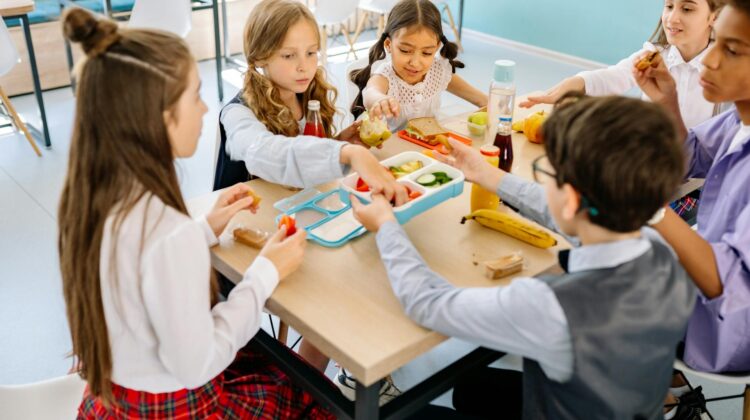
Back to School Wellness: AI Meal Plans, Gut Friendly Snacks & Wearables for Students
Introduction: Wellness as the Foundation for Learning
As children head back to school, their health and well-being play a vital role in academic performance and emotional balance. Parents often focus on school supplies, but child health requires more than new books and uniforms. Proper nutrition, balanced routines, and supportive tools can make the transition smoother. Today, AI-powered meal plans, gut-friendly snacks, and wearable devices are transforming student wellness, offering innovative ways to support growth, focus, and resilience.
The Role of Nutrition in Child Health
Nutrition directly affects energy levels, mood, and concentration. When children eat balanced meals rich in whole grains, proteins, fruits, and vegetables, their learning ability improves. Conversely, diets high in processed foods, sugar, and unhealthy fats can lead to fatigue and difficulty concentrating. In a digital age where personalization is possible, AI-powered tools are helping families create customized nutrition plans that suit children’s needs and busy school schedules.
AI Meal Plans: Smarter Nutrition for Students
Artificial Intelligence is revolutionizing meal planning by analyzing dietary needs, allergies, preferences, and activity levels. AI-driven platforms can recommend weekly menus, generate shopping lists, and even suggest recipes that fit into family routines. For children, this means:
- Balanced meals that support growth and immune health.
- Portion control that prevents overeating or undernourishment.
- Variety that encourages trying new, nutrient-rich foods.
Parents can use AI tools to build consistent eating habits that fit into school-day routines, improving both child health and household efficiency.
Gut Friendly Snacks for Energy and Focus
Beyond meals, snacks play a huge role in maintaining energy throughout the school day. Instead of sugary treats or processed chips, gut-friendly snacks can enhance digestion and boost immunity. Options include:
- Yogurt with probiotics for a healthy microbiome.
- Fruit and nut mixes for steady energy release.
- Whole grain crackers with hummus to balance fiber and protein.
- Bananas and berries for quick, natural fuel.
Gut health has been linked to mood regulation and concentration, making these choices not only nourishing but also critical for learning and emotional well-being. By integrating gut-friendly snacks into children’s daily routines, parents take an important step toward sustainable child health.
Wearables: Technology That Monitors Wellness
Wearable devices, once reserved for adults, are now widely available for children. These gadgets track sleep, physical activity, hydration, and even stress levels. Parents and caregivers can monitor patterns and make adjustments to improve health outcomes. Benefits include:
- Improved sleep tracking to ensure children get adequate rest.
- Encouragement for daily physical activity, such as step goals.
- Alerts for hydration and movement, reducing sedentary time.
- Stress monitoring features that signal when children may need downtime.
Wearables empower both children and parents to make health-conscious lifestyle decisions. When paired with good nutrition and daily routines, they create a holistic approach to wellness.
The Connection Between Lifestyle and Academic Success
Health is more than physical—it’s a complete lifestyle choice that influences mental clarity, focus, and resilience. Students with balanced diets, consistent exercise, and adequate rest tend to perform better academically and socially. AI meal planning ensures children eat well, gut-friendly snacks keep their energy stable, and wearables provide insights into their overall wellness. Together, these tools create a strong foundation for both learning and healthy development.
Family Involvement in Back-to-School Wellness
Parents play the most important role in shaping wellness routines. Preparing meals together, encouraging active play, and reviewing health data from wearables can turn wellness into a family lifestyle. Schools can also partner with parents by offering healthier cafeteria options, mindfulness sessions, and opportunities for physical activity that go beyond traditional sports.
Expert Insights on Back-to-School Health
Child health experts emphasize the importance of integrating modern tools into daily routines. Nutritionists point to AI as a practical way to address picky eating habits and nutritional gaps. Pediatricians stress that gut health influences immune strength, which is vital during school months when colds and flu are common. Psychologists highlight the role of wearables in promoting self-awareness among children, encouraging them to build independence in managing their health.
Overcoming Challenges and Barriers
While these innovations are promising, families may face challenges such as costs, access to technology, and building consistency. Parents should start small—introducing one or two changes such as a new snack routine or basic wearable—and expand as habits take root. Affordable options for both apps and devices are increasingly available, making wellness technology more accessible than ever.
Conclusion: Building Smarter Wellness Habits
Back-to-school season is the perfect time to prioritize child health with strategies that go beyond traditional care. AI meal plans simplify nutrition, gut-friendly snacks fuel the body and mind, and wearables provide real-time insights into wellness. By weaving these practices into everyday lifestyle routines, families can set children up for a school year filled with energy, focus, and resilience. Wellness in the digital age isn’t about complexity—it’s about using smart, accessible tools to make healthy living a natural part of childhood.







